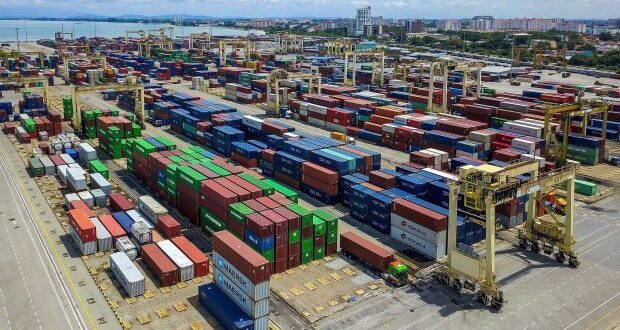KUALA LUMPUR: Despite a challenging global economic landscape, Malaysia’s trade exceeded RM2 trillion for the third consecutive year to reach RM2.64 trillion in 2023, chalking up a trade surplus of RM214.1 billion over a successive 26-year period since 1998.
Despite a surplus, the 2023 trade figure saw a 7.3 per cent decrease versus a year ago, in tandem with slower global demand, lower commodity prices, geopolitical uncertainties, high inflation rate, downcycle in the semiconductor sector and the high base effect of last year, a statement from the Investment, Trade and Industry Ministry (MITI) said.
“Weak commodity prices continued to affect trade performance, notably for crude palm oil, crude petroleum and liquefied natural gas (LNG).
“Geopolitical uncertainties such as the United States-China, Russia-Ukraine and Middle East conflicts also took a toll on the global economy and dampened demand for Malaysian products while high global inflation eroded consumer purchasing power in importing countries,” MITI said.
Exports contracted by eight per cent y-o-y to RM1.43 trillion in 2023, the third successive year that exports exceeded the RM1 trillion mark, to achieve 82.4 per cent of the 2025 target set under the mid-term Review of the 12th Malaysia Plan (12MP).
MITI said electrical and electronic (E&E) products, which dominated exports, saw a 3.0 per decrease to RM575.45 billion against 2022 to account for 40.4 per cent of total exports in 2023.
Despite the contraction, exports of semiconductor devices and integrated circuits (ICs) registered positive growth, it said.
Petroleum products weakened 11 per cent y-o-y to RM143.49 billion, chemicals and chemical products went down 11.3 per cent to RM71.46 billion, machinery, equipment and parts declined 5.2 per cent to RM57.28 billion, and metal manufacturing narrowed 11.4 per cent to RM56.33 billion.
Meanwhile, 2023 imports crossed the RM1 trillion mark for the second time, weakened by 6.4 per cent to RM1.21 trillion versus a year ago.
The three main categories of 2023 imports by end use were intermediate goods valued at RM620.87 million, capital goods (RM128.83 billion), and consumption goods (RM104.1 billion), which together, accounted for 70.5 per cent of total imports.
Major trading partners in 2023 were Asean countries, China, the US, the European Union, and Japan, accounting for 67.7 per cent of Malaysia’s total trade.
MITI said free trade agreements notably the Regional Comprehensive Economic Partnership and the Comprehensive and Progressive Agreement for Trans-Pacific Partnership are expected to add to the positive external trade outlook.
“Malaysia’s trade performance is expected to recover in 2024 in tandem with the World Trade Organisation outlook which anticipates global trade to grow by 3.3 per cent.
Malaysia’s trade is expected to grow by 5.0 per cent in 2024, while exports and imports are estimated to increase by 5.1 per cent and 4.9 per cent, respectively, based on the Finance Ministry’s Economic Outlook 2024 publication. – BK
 BeritaKini.biz Berita Viral Terkini di Malaysia
BeritaKini.biz Berita Viral Terkini di Malaysia





